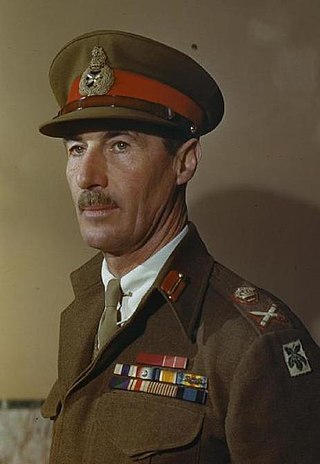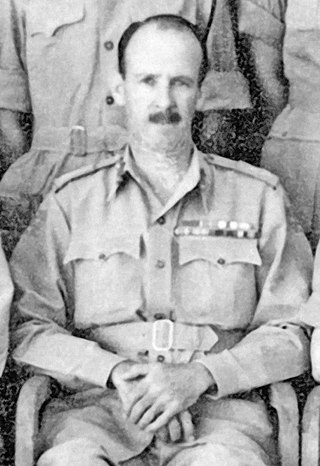
Sir Philip Armand Hamilton Gibbs KBE was an English journalist and prolific author of books who served as one of five official British reporters during the First World War. Four of his siblings were also writers, A. Hamilton Gibbs, Francis Hamilton Gibbs, Helen Hamilton Gibbs and Cosmo Hamilton, as was his father Henry James Gibbs and his own son, Anthony.

Sir Charles William Chadwick Oman, was a British military historian. His reconstructions of medieval battles from the fragmentary and distorted accounts left by chroniclers were pioneering.
John Gilbert Cock MM MID was an English footballer who played for various English club sides as a centre forward. He also had the distinction of being the first Cornishman to play for the England national team, a decorated World War I soldier, and an actor. His younger brothers, Donald Cock and Herbert Cock, also played professional football.

Sir Henry Worth Thornton, KBE was a businessman. Thornton served as general superintendent of the Long Island Rail Road from 1911 to 1914, general manager of the Great Eastern Railway in England from 1914 to 1922, and president of the Canadian National Railways from 1922 to 1932.

Lieutenant-General Sir Ronald MacKenzie Scobie, was a senior British Army officer who fought in both the First and Second World Wars, where he commanded the 70th Infantry Division and later III Corps. He was also a Scotland international rugby union player.
Sir Sidney Frederic Harmer, KBE, FRS was a British zoologist. He was President of the Linnean Society 1927–1931 and was awarded the Linnean Medal in 1934.

Arthur Shirley Benn, 1st Baron Glenravel,, known as Sir Arthur Benn, Bt, between 1926 and 1936, was a British businessman and politician.
Stubbington House School was founded in 1841 as a boys' preparatory school, originally located in the Hampshire village of Stubbington, around 1 mile (1.6 km) from the Solent. Stubbington House School was known by the sobriquet "the cradle of the Navy". The school was relocated to Ascot in 1962, merging with Earleywood School, and it closed in 1997.

Sir Malcolm Martin Macnaghten, KBE, was an Irish Unionist politician and judge, the fourth son of Lord Macnaghten.
Arthur William Thomson Perowne was an Anglican bishop in Britain. He was the first Bishop of Bradford and, from 1931, was the Bishop of Worcester.

General Sir Francis Robert Roy Bucher was a British Indian Army officer who became the second Commander-in-Chief of the Indian Army and the final non-Indian to hold the top post of the Indian Army after Partition.

John Calvin Coolidge Sr. was an American politician and businessman from Vermont, and the father of Calvin Coolidge, the 30th president of the United States. The senior Coolidge administered the presidential oath of office to his son at their family homestead in the early morning hours of August 3, 1923, following the death of President Warren G. Harding.

Admiral Sir Charles Thomas Mark Pizey was a Royal Navy officer who served as the last Commander-in-Chief and first Chief of Naval Staff of the Indian Navy from 1951 to 1955.

The Commander-in-Chief, Plymouth, was a senior commander of the Royal Navy for hundreds of years. Plymouth Command was a name given to the units, establishments, and staff operating under the admiral's command. Between 1845 and 1896, this office was renamed Commander-in-Chief, Devonport. The Commanders-in-Chief were based in what is now Hamoaze House, Devonport, Plymouth, from 1809 to 1934 and then at Admiralty House, Mount Wise, Devonport, from 1934 until 1996.
Vice-Admiral Sir Arthur Allison Fitzroy Talbot KBE CB DSO & Bar DL was a Royal Navy officer who went on to be Commander-in-Chief, Plymouth.

Sir Harry Heaton Barker was a New Zealand newspaper journalist and editor, local politician, and founder of the Four Square supermarket chain. He was mayor of Gisborne for 27 years.

Major General Sir Noel Galway Holmes KBE CB MC was a senior British Army officer during the Second World War and a Davis Cup tennis player for Ireland in 1930.
Sir Sigismund Ferdinand Mendl was a British Liberal Party politician and businessman.
Sir Hayes Marriott was a British colonial administrator. Marriott joined the Straits Settlement Civil Service in 1896 as a cadet and rose to the high position of Colonial Secretary before retiring in 1928.
Sir Alexander Sym Small was a colonial administrator. He joined the Malayan Civil Service and was a cadet in January 1911 and served most of his Civil Service career in Federated Malay States (FMS) and Straits Settlements (SS). He retired as the Colonial Secretary of Straits Settlements in 1940.